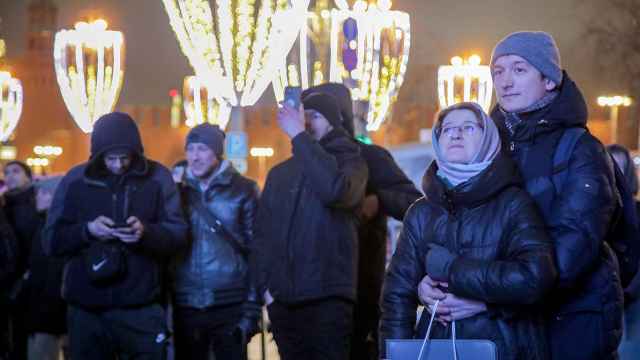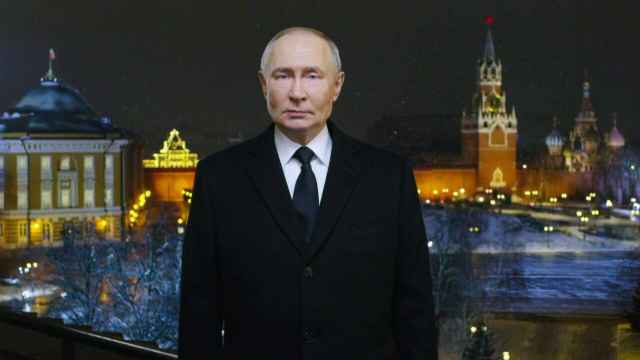Russia's longest transition period to lower its import duties in compliance with WTO commitments will be for pork, but pig farmers don't feel protected.
Imports could grow from this year's 23 percent of the market as soon as Russia joins the World Trade Organization, a move expected by the middle of next year, said Yury Kovalyov, chief executive of the National Pig Farmers' Union. This would stem chiefly from the government's agreement to reduce import duties for live pigs, he said.
While Russia won a transition period of eight years to reduce pork duties, a cut in live pig imports from the current 40 percent to 10 percent will take effect immediately, he said.
"This is an opportunity that could prompt construction of new farms abroad, say, in the neighboring Baltic states," he said.
Foreign competitors are willing to operate at a profit rate of 5 percent, which threatens renascent Russian farms that need a higher rate to repay loans they took in recent years to grow their business.
"We need to break free of the loans," Kovalyov said. "We have started from scratch."
By 2005, pork production from corporate pig farming had fallen to just a quarter of its 1991 level, he said. Output then began rising thanks to state support and protective import duties. Import duties on live pigs shot up to 40 percent in 2009, following record foreign deliveries.
Corporate output has risen threefold since 2006 to measure 1.2 million tons this year, Kovalyov said.
Under WTO commitments, Russia will reduce the import duty to zero in 2019 from 15 percent now for pork entering the country within a government quota. Outside the quota, the duty will slide to 65 percent from the current 75 percent.
As of 2020, the country will scrap pork quotas and introduce a flat duty of no more than 25 percent.
The government will maintain the right to set quotas for poultry and beef. Import duties will remain at 25 percent for in-quota poultry and 15 percent for in-quota beef. Outside the quotas, the duty will go down for poultry, from 95 percent to 80 percent, and up for beef, from 50 percent to 55 percent.
In other changes that have been announced, Russia will open its market wider for sugar imports, Interfax reported. The sugar price at the New York Mercantile Exchange will have to fall to $0.09 a pound — half of the current $0.18 — to offset the lower-end duty of $140 a ton, thus allowing less expensive foreign sugar into the country.
The duty will gradually rise to $270 a ton if the price continues to fall and reaches $0.045 a pound in New York.
Russia’s sugar production forecast for 2011-12 was reduced to 5 million tons from 5.3 million tons, German researcher F.O. Licht said Monday in a report, Bloomberg reported.
Output in Ukraine was forecast at 2.21 million tons, down from 2.48 million tons, according to the researcher. Crushing of sugar cane in India and Mexico is “off to a slow start,” F.O. Licht said.
A Message from The Moscow Times:
Dear readers,
We are facing unprecedented challenges. Russia's Prosecutor General's Office has designated The Moscow Times as an "undesirable" organization, criminalizing our work and putting our staff at risk of prosecution. This follows our earlier unjust labeling as a "foreign agent."
These actions are direct attempts to silence independent journalism in Russia. The authorities claim our work "discredits the decisions of the Russian leadership." We see things differently: we strive to provide accurate, unbiased reporting on Russia.
We, the journalists of The Moscow Times, refuse to be silenced. But to continue our work, we need your help.
Your support, no matter how small, makes a world of difference. If you can, please support us monthly starting from just $2. It's quick to set up, and every contribution makes a significant impact.
By supporting The Moscow Times, you're defending open, independent journalism in the face of repression. Thank you for standing with us.
Remind me later.





